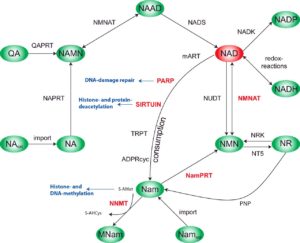Dates: October 30 – November 3 2017
Location: Room K3 3.069 (Basement floor, between ‘Kjemiblokk’ 3 and 4), Gløshaugen, NTNU, Trondheim
Lecturers:
Ines Heiland (Department of Arctic and Marine Biology, UiT – The Arctic University of Norway)
Eivind Almaas (Department of Biotechnology and Food Science, NTNU)
Almut Heinken (Luxembourg Center for Systems Biomedicine, University of Luxembourg) (will replace Ines Thiele)
Ronan Fleming (Luxembourg Center for Systems Biomedicine, University of Luxembourg)
Barbara Bakker (Faculty of Medical Sciences, University of Groningen)
Recommended credits: 5 ECTS. Note that this course runs without a NTNU course code. We will provide a diploma describing the work load after the course, to be approved at your local institution.
Registration:Closed
Schedule: may be downloaded from here.
Preparations for the course:
- Please read the material found here and here.
- You should have Matlab installed on your laptop – version 2015a, 2015b, 2016a or 2016b, BUT NOT 2017a or 2017b.
- You must have Cobra toolbox installed on your laptop, please find the instructions here.
Description
This course will provide an introduction to the computational analysis and reconstruction of both small and genome-scale metabolic networks. The goal is to make students familiar with state-of-the-art computational tools and databases, as well as providing the students with hands-on experience. Furthermore, we will cover the mathematical basis of constraint based analysis of genome-scale metabolic models and provide a foundation for stability and control analysis of dynamic models.
The first part of the course (3 days) will focus on the organization of metabolic networks; their reconstruction and the mathematical basis of optimization approaches used in constraint-based modeling. We will use COBRApy, a Python based toolbox, for the analysis and manipulation of genome-scale metabolic models. Alternatively, the COBRA toolbox in MATLAB can be used. We will also discuss available methods for data integration.
The second part of the course (2 days) will focus on the reconstruction and analysis of small, mechanistic models of metabolic pathways that allow the simulation of dynamic properties of the system. In this context, we will provide an introduction to stability and control analysis.
Course program
The course will be given over one week (5 days, Monday through Friday), each day from 09-16 with a 1-hour lunch break. We will schedule lectures and practical exercises so that each will contribute about 50% to the intensive course week.
The students will receive a reading list before the course and will be given a course project at the end of the course week. The project will require the students to apply methods taught during the course, and the students will have to prepare and return a project report 4 weeks after the end of the week of course teaching.
Prerequisites
Familiarity with Linux and a programming language (preferably Python) is expected. Basic knowledge in biochemistry, linear algebra and statistics are required.
Learning outcomes and competence
– Explain the organization and structure of metabolic models
– Knowledge about relevant databases
– Capable of reconstructing metabolic models
– Explain the underlying principles of constraint based modeling approaches
– Explain stability and control analysis
– Proficiency in use of COBRA toolbox for genome-scale metabolic modeling
– Explain limits of small and genome-scale metabolic analysis
– Knowledge about tools for data integration
Evaluation
Project report (10 pages) that will be evaluated and needs to be approved. Grades: pass/fail
Illustration: Ines Heiland, DOI: 10.1042/BST20150133
LagreLagre
LagreLagre
